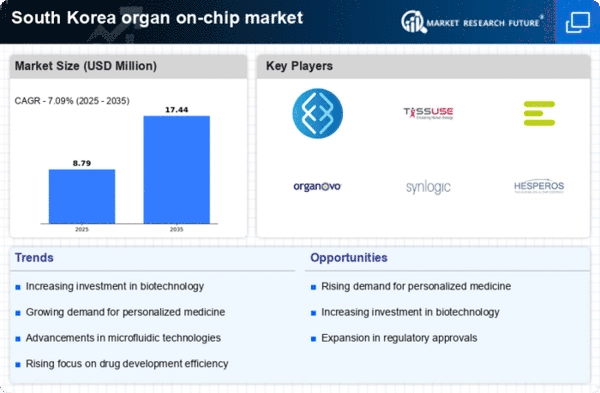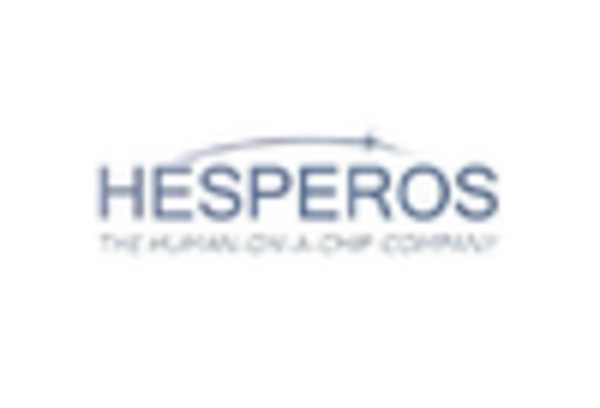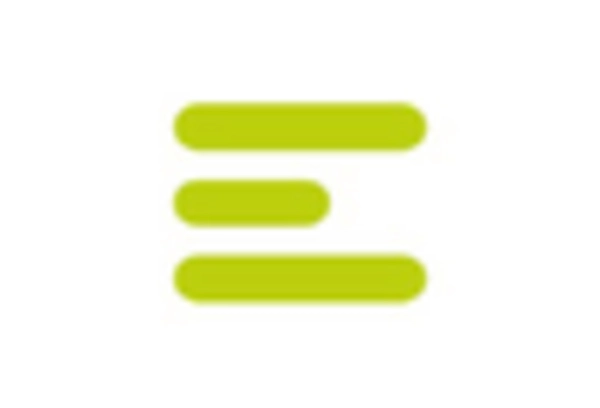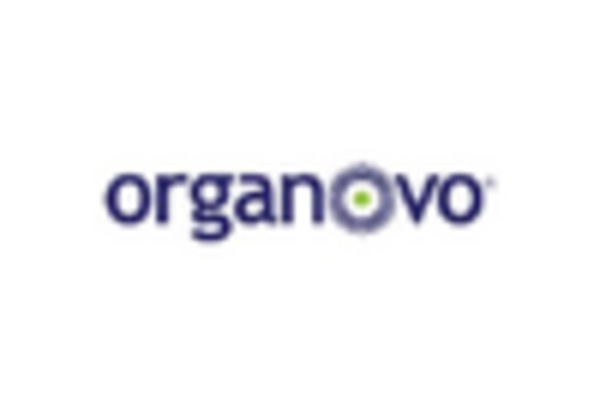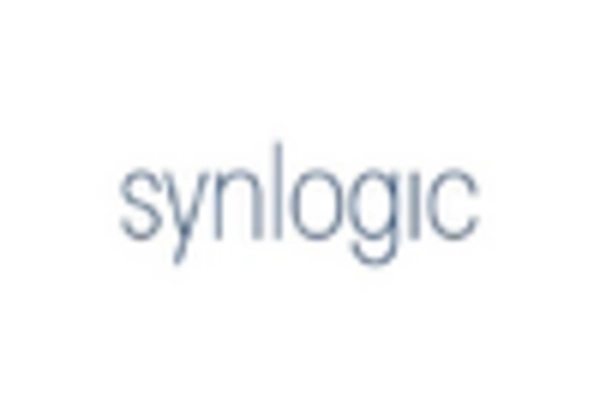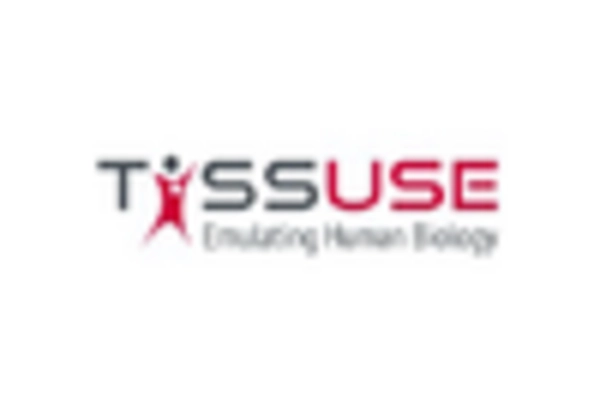Strengthening Regulatory Frameworks
The organ on-chip market in South Korea is likely to gain momentum due to the strengthening of regulatory frameworks that support innovative technologies. Regulatory bodies are increasingly recognizing the potential of organ-on-chip devices to provide more accurate and reliable data for drug testing and safety assessments. This recognition is expected to facilitate the approval processes for organ-on-chip technologies, thereby encouraging their adoption in both research and clinical settings. The organ on-chip market may see a growth trajectory that aligns with these regulatory advancements, potentially reaching a market value of $220 million by 2029.
Growing Awareness of Ethical Concerns
Ethical considerations surrounding animal testing are becoming increasingly prominent in South Korea, leading to a shift towards alternative methods such as organ-on-chip technologies. The organ on-chip market is poised to benefit from this growing awareness, as stakeholders seek to minimize animal use in research and development. This shift is not only ethically motivated but also aligns with regulatory trends favoring humane research practices. As a result, the market is expected to expand, with projections indicating a potential market size of $180 million by 2028, reflecting a growing preference for humane and efficient testing methods.
Rising Demand for Personalized Medicine
The organ on-chip market in South Korea is experiencing a notable surge in demand driven by the increasing focus on personalized medicine. As healthcare shifts towards tailored treatments, the need for advanced models that accurately mimic human physiology becomes paramount. Organ-on-chip technologies offer the potential to create patient-specific models, enabling more effective drug testing and disease modeling. This trend is reflected in the market's growth, which is projected to reach approximately $200 million by 2027, indicating a compound annual growth rate (CAGR) of around 15%. The organ on-chip market is thus positioned to play a crucial role in the evolution of personalized healthcare solutions.
Increased Investment in Biotech Research
The organ on-chip market in South Korea is benefiting from a surge in investment directed towards biotechnology research. Government initiatives and private sector funding are fostering an environment conducive to innovation in organ-on-chip technologies. This influx of capital is likely to accelerate the development of new applications and enhance the overall capabilities of organ-on-chip devices. The organ on-chip market is projected to see a growth rate of approximately 12% annually, driven by these investments. As research institutions and companies collaborate, the potential for breakthroughs in drug discovery and toxicology testing becomes increasingly viable.
Advancements in Microfabrication Techniques
Innovations in microfabrication techniques are significantly enhancing the capabilities of the organ on-chip market in South Korea. These advancements allow for the creation of more complex and functional organ models, which can better replicate human organ behavior. Techniques such as 3D printing and soft lithography are being increasingly utilized to develop organ-on-chip devices with improved precision and scalability. As a result, the organ on-chip market is witnessing a transformation that could lead to more reliable preclinical testing and reduced reliance on animal models. The market is expected to grow substantially, with estimates suggesting a value of $150 million by 2026.


